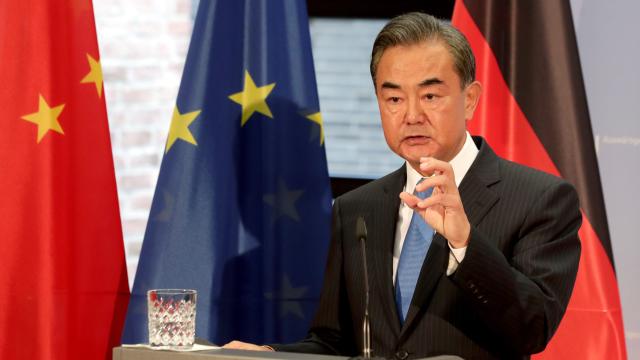“Which global power will win the moral high ground for global internet security standards?,” asked nobody. But the US and China are locked in competition for the title nonetheless. Today, China served its own counter-proposal for the global internet, in what will predictably become a pointless, boring bit of geopolitical dick measuring.
US Secretary of State Mike Pompeo ratcheted up the latest feud last month when he announced the Clean Network program, a somewhat xenophobically-titled six-point plan to block Chinese government access to US citizens’ data. The desire is not unreasonable, and it notes correctly that various nations have agreed upon security measures to limit China’s access to 5G infrastructure and subsequently blocked Huawei equipment. But with fuzzy enforcement mechanisms, the plan reads as a flex, implemented at this point solely by Trump personally drawing on national emergency powers to ban WeChat (likely with more bans to come) and force a sale of TikTok. China state media has equated the latter plan — which would enrich a yet-unknown American tech giant — to robbery.
It’s been unclear how China might retaliate to Trump’s attempted forced sale. While Apple is allowed to operate in China, most US social media companies (and Google) are already blocked. So China seems to be positioning itself as the adult in the room that should be trusted to establish “collective governance,” and step in as the new leader for “international rules-making on data security.”
In a speech published today by China’s Ministry of Foreign Affairs, Foreign Minister Wang Yi referred to a “certain country” that “keeps making groundless accusations against others in the name of ‘clean’ network.’” This unnamed country has “used security as a pretext to prey on enterprises of other countries who have a competitive edge.”
“Such blatant acts of bullying must be opposed and rejected,” Wang continued.
The plan opens with a not-so-subtle dig at Trump’s trade war, asking that the world start adopting a “rational attitude” that doesn’t upend the supply chain. It also counters widely-held assumptions about Chinese national security threats, raised by the US’s rejection of China-owned tech companies. China says that nations must not coerce domestic companies to store foreign users’ data domestically (as alleged of TikTok); must not mass surveil foreign citizens (alleged of WeChat); and companies shouldn’t install “backdoors in their products and services to illegally obtain user data” (alleged of Huawei.)
It also asserts China’s favourite concept of cyber sovereignty — the idea that a nation can and should be able to govern the data accessible to its citizens. This is hard to enforce, barring an entirely closed internet.
The Wall Street Journal reports that Chinese diplomats have been shopping the idea around to foreign governments, but it “wasn’t clear how much interest it has garnered so far.”
So the US and China have raised legitimate international security concerns, but seem more committed to needling each other with manifestos. Both might instead look to Europe, which is already enforcing its robust data privacy rules prompted partly in response to US snooping on their citizens.
